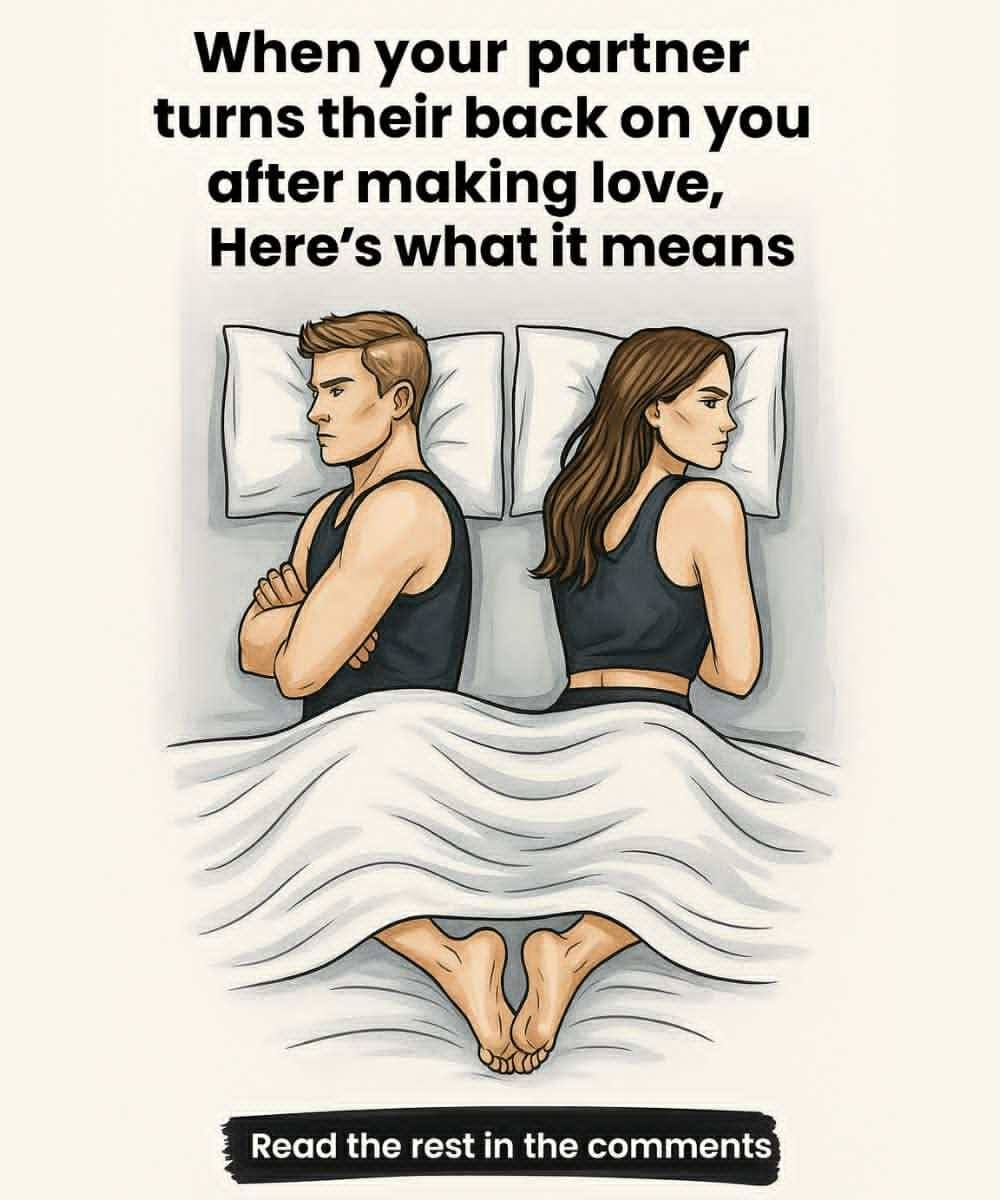You’ve just shared a deeply intimate moment with your partner — a moment filled with closeness, connection, maybe even love. But as the silence settles, they suddenly turn away. No words, no explanation. Just a quiet shift, a back turned to you. And now you’re lying there, staring at the ceiling, wondering: Did I do something wrong?
It’s a vulnerable feeling — one that can stir up insecurity or make you question what just happened. Is your partner upset? Are they retreating emotionally? Or are you overthinking a perfectly normal behavior? The truth is, these quiet moments after intimacy can carry a range of meanings, and not all of them are cause for concern.
Sometimes, turning away is just what it sounds like — a moment to breathe. For some people, physical closeness after intimacy can feel overwhelming. It’s not that they’re withdrawing from you, but that their body and mind simply need space to recalibrate. Imagine your nervous system still humming, your heart still racing — a few deep breaths, some stillness, and a bit of personal space can help bring things back to balance. In that sense, turning away isn’t rejection. It’s recovery.
There are also moments when the reasons are purely physical. Intimacy can leave your body feeling hot, sore, or overstimulated. Maybe the room feels too warm, the bed suddenly feels cramped, or your partner just needs to stretch out in a way that brings relief. It might be as simple as repositioning for comfort. In these cases, there’s no hidden message — just the body quietly asking for rest.
But emotional layers can come into play too. For some people, vulnerability doesn’t come easily. The closeness of physical connection can stir emotions they don’t know how to process in the moment. Turning away, then, becomes a subtle form of self-protection — not from you, but from the rush of feeling. If your partner has a history of struggling with emotional openness, this might be their way of coping. It doesn’t mean they don’t care. It just means intimacy can be complicated terrain.
And sometimes, it really is just habit. Maybe your partner has always slept facing one side, and after things wind down, their body automatically reverts to that familiar position. You might notice they do the same thing even on nights when there’s no intimacy involved. In that case, what feels like emotional distance may just be a bedtime routine — no drama, no hidden meaning.
Of course, it’s also fair to acknowledge that in some situations, turning away can signal something deeper. If this behavior feels new, or if it’s accompanied by other signs — a lack of communication, tension in your interactions, emotional coldness — it might be a quiet sign of growing distance. Relationships ebb and flow, and emotional disconnection can creep in silently. If your gut is telling you something’s off, don’t ignore it. It might be time for an honest, gentle conversation — one that’s not about blame, but about understanding what’s really going on beneath the surface.
The key is not to jump to conclusions. It’s easy to fill silence with fear, but not every quiet moment is a sign of trouble. Try staying present, observing patterns, and most importantly, tuning into your own emotional needs. If something doesn’t feel right, give it space to breathe — and when the time feels right, talk about it. A simple, “Hey, I noticed you turned away after we were close — is everything okay?” can open the door to clarity.

Intimacy isn’t just about what happens in the moment — it’s also about what follows. The way we respond to closeness, to stillness, to silence — it all matters. And while there may not be a one-size-fits-all answer, compassion and communication go a long way.
So if you ever find yourself wondering why your partner turns away after an intimate moment, take a breath before you assume. It might be nothing. It might be something. But either way, you’re not alone in feeling what you feel — and you’re allowed to ask for connection, clarity, and care.
Please SHARE this article with your family and friends on Facebook.




